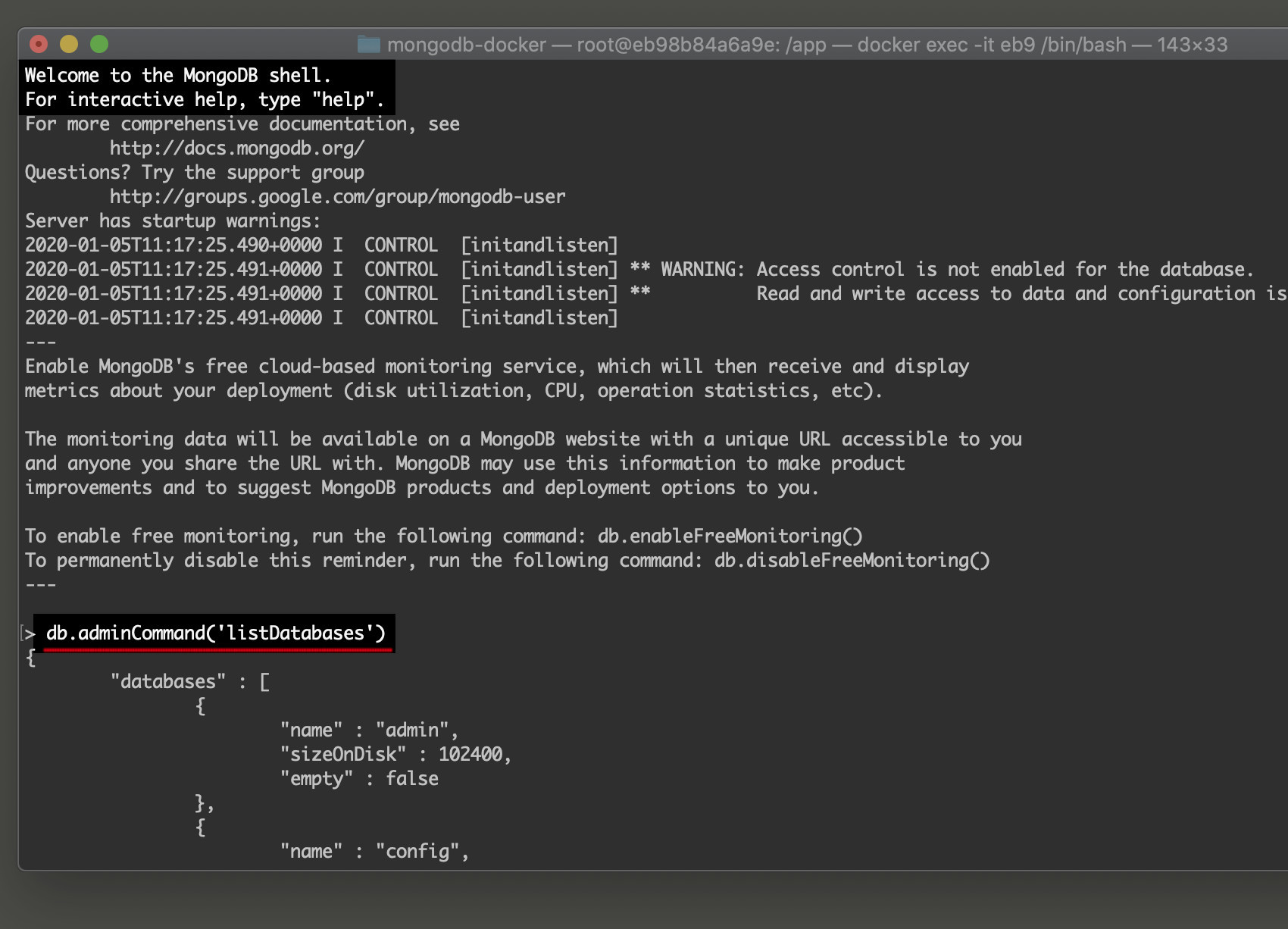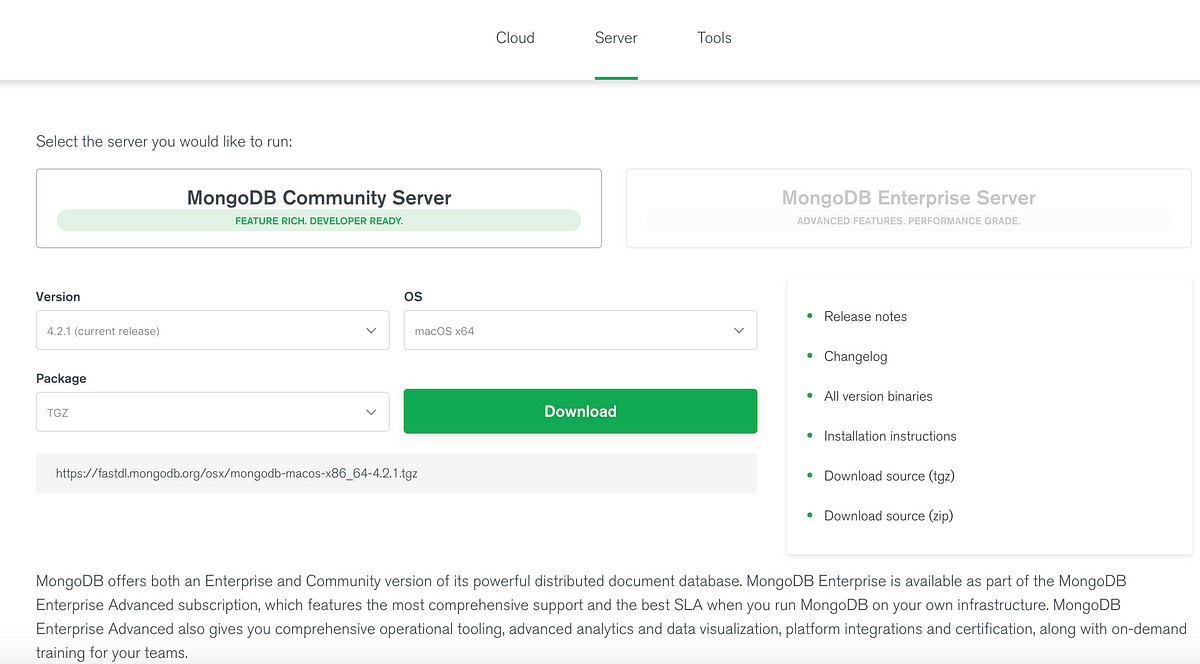
- Os x start mongodb server install#
- Os x start mongodb server update#
- Os x start mongodb server series#
Step 6: Uninstall MongoDB Community Edition This command will connect to your MongoDB database. # mongo Command Ouput : MongoDB shell version v4.0.6Ĭonnecting to: mongodb://127.0.0.1:27017/?gssapiServiceName=mongodb # chkconfig mongod on Ĭonnect to your MongoDB shell by using following command. Now enable mongod process at system boot. T01:33:47.121-0500 I NETWORK waiting for connections on port 27017Īlso you can start, stop or restart mongod process by issuing the following commands: # service mongod start You can make sure that the mongod process has been started successfully by verifying the contents of /var/log/mongodb/mongod.log log file for a line reading. Now it’s time to start the mongod process by issuing the following command: # service mongod start # iptables -A INPUT -m state -state NEW -m tcp -p tcp -dport 27017 -j ACCEPT # firewall-cmd -zone=public -add-port=27017/tcp -permanent Note: This step is only applicable for Red Hat based distributions, Debian and Ubuntu users can ignore it.

# vi /etc/nf path: /var/log/mongodb/mongod.log If commented any settings, please un-comment it. Open file /etc/nf and verify below basic settings.

Step 3: Configure MongoDB Community Edition
Os x start mongodb server install#
$ sudo apt-get install -y mongodb-org=4.0.6 mongodb-org-server=4.0.6 mongodb-org-shell=4.0.6 mongodb-org-mongos=4.0.6 mongodb-org-tools=4.0.6 To install a particular MongoDB release version, include each component package individually and add the version number to the package name, as shown in the following example: - On RPM based Systems. Once the repo installed, run the following command to install MongoDB 4.0. Step 2: Installing MongoDB Community Edition Packages $ echo "deb jessie/mongodb-org/4.0 main" | sudo tee /etc/apt//mongodb-org-4.0.list $ echo "deb stretch/mongodb-org/4.0 main" | sudo tee /etc/apt//mongodb-org-4.0.list
Os x start mongodb server series#
MongoDB repository only provides packages for 64-bit Debian 9 Stretch and Debian 8 Jessie, to install MongoDB on Debian, you need to run the following series of commands: On Debian 9 $ sudo apt-key adv -keyserver hkp://:80 -recv 9DA31620334BD75D9DCB49F368818C72E52529D4 On Ubuntu 14.04 $ echo "deb trusty/mongodb-org/4.0 multiverse" | sudo tee /etc/apt//mongodb-org-4.0.list On Ubuntu 16.04 $ echo "deb xenial/mongodb-org/4.0 multiverse" | sudo tee /etc/apt//mongodb-org-4.0.list On Ubuntu 18.04 $ echo "deb bionic/mongodb-org/4.0 multiverse" | sudo tee /etc/apt//mongodb-org-4.0.list
Os x start mongodb server update#
Next, create a MongoDB repository file and update the repository as shown. To install MongoDB Community Edition on Ubuntu, you need to first import the public key used by the package management system. MongoDB repository only provides packages for 18.04 LTS (bionic), 16.04 LTS (xenial) and 14.04 LTS ( Trusty Tahr) long-term supported 64bit Ubuntu releases. On Red Hat, CentOS and FedoraĬreate a file /etc//mongodb-org-4.0.repo to install MongoDB directly, using yum command. Step 1: Adding MongoDB Repositoryįirst, we need to add MongoDB Official Repository to install MongoDB Community Edition on 64-bit platforms. In this article, we will walk you through the process of installing MongoDB 4.0 Community Edition on RHEL, CentOS, Fedora, Ubuntu and Debian servers with the help of official MongoDB repository using.



 0 kommentar(er)
0 kommentar(er)
